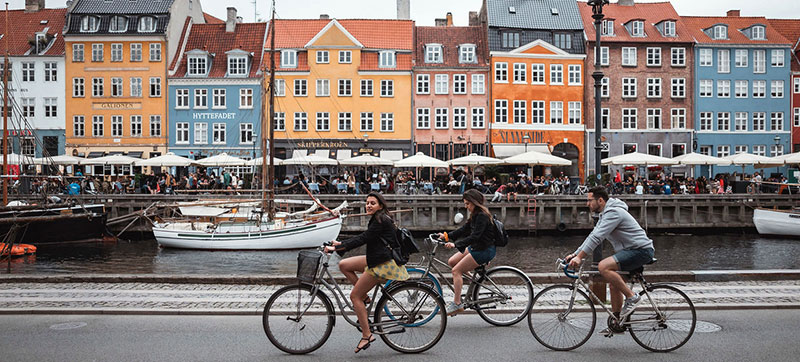 Green Energy
Green Energy Sustainable transport key to green energy shift: UN Secretary-General
New York: With global transport at a crossroads, government leaders, industry experts, and civil society groups are meeting in Beijing, China, for a UN conference to chart the way forward to a more sustainable future for the sector, and greater climate action overall.
The three-day UN Sustainable Transport Conference, which opened on Thursday, will examine how transportation can contribute to climate response, economic growth and sustainable development.
It is taking place just weeks before the COP26 UN climate change conference in Glasgow, Scotland.
In remarks to the opening, UN Secretary-General António Guterres underlined what is at stake.
“The next nine years must see a global shift towards renewable energy. Sustainable transport is central to that transformation,” he said.
The move to sustainable transport could deliver savings of $70 trillion by 2050, according to the World Bank.
Better access to roads could help Africa to become self-sufficient in food, and create a regional food market worth $1 trillion by the end of the decade.
Net-zero goal
The COVID-19 pandemic has revealed how transport is “far more than a means of getting people and goods from A to B”, the UN chief said.
Rather, transport is fundamental to implementing the 2030 Agenda for Sustainable Development and the Paris Agreement on climate change, both of which were “badly off-track” even before the crisis.
The Paris Agreement aims to limit global temperature rise to 1.5 degrees Celsius, but the door for action is closing, he warned.
“Transport, which accounts for more than one quarter of global greenhouse gases, is key to getting on track. We must decarbonize all means of transport, in order to get to net-zero emissions by 2050 globally.”
A role for everyone
Decarbonizing transportation requires countries to address emissions from shipping and aviation because current commitments are not aligned with the Paris Agreement.
Priorities here include phasing out the production of internal combustion engine vehicles by 2040, while zero emission vessels “must be the default choice” for the shipping sector.
“All stakeholders have a role to play, from individuals changing their travel habits, to businesses transforming their carbon footprint,” the Secretary-General said.
He urged governments to incentivize clean transport, for example through regulatory standards and taxation, and to impose stricter regulation of infrastructure and procurement.
Safer transport for all
The issues of safety and access must also be addressed, the Secretary-General continued.
“This means helping more than one billion people to access paved roads, with designated space for pedestrians and bicycles, and providing convenient public transit options,” he said.
“It means providing safe conditions for all on public transport by ending harassment and violence against women and girls, and reducing deaths and injuries from road traffic accidents.”
Making transport resilient
Post-pandemic recovery must also lead to resilient transport systems, with investments going towards sustainable transport, and generating decent jobs and opportunities for isolated communities.
“Public transport should be the foundation for urban mobility,” he said. “Per dollar invested, it creates three times more jobs than building new highways.”
With much existing transport infrastructure, such as ports, vulnerable to extreme climate events, better risk analysis and planning are needed, along with increased financing for climate adaptation, particularly in developing countries.
Mr. Guterres stressed the need for effective partnerships, including with the private sector, so that countries can work together more coherently.
“The transformative potential of sustainable transport can only be unleashed if improvements translate into poverty eradication, decent jobs better health and education, and increased opportunities for women and girls. Countries have much to learn from each other,” he said.
More about the conference
The world needs better and safer ways to move people and goods. Highways around the world are choked with traffic. Traffic fatalities and casualties are rising. Air pollution from transport is causing more and more health impacts. Close to a quarter of global greenhouse gas emissions come from transport and these emissions are projected to grow substantially in the years to come, further exacerbating climate change.
But new ideas and innovation are leading to transport solutions that are affordable, realistic, socially acceptable and environmentally sound. A transport revolution is here: electric cars powered by renewable energy; sustainable air travel; zero emission ships and communities that promote walking and bicycling. Accelerating the implementation of these solutions, everywhere, are a critical part of the United Nations’ efforts to achieve the Sustainable Development Goals (SDGs) and address the global climate crisis.
The 2021 UN Sustainable Transport Conference will showcase the commitments and resolve of key stakeholders from Governments, UN system and other international organizations, the private sector, and civil society to advance action for sustainable transport. All modes of transport—road, rail, aviation and waterborne—will be addressed.
The Conference will also consider the concerns of vulnerable groups, such as women, the youth, the elderly, persons with disabilities, and people living in poverty, and of many developing countries, including least developed countries, landlocked developing countries and small island developing States, which will receive particular focus. Key transport objectives, such as providing access for all while leaving no one behind, green mobility, efficiency and safety will be discussed.
The Conference will culminate in calls for global action to further advance sustainable transport worldwide, complemented by new partnerships, voluntary commitments and initiatives to support sustainable transport.
Support Our Journalism
We cannot do without you.. your contribution supports unbiased journalism
IBNS is not driven by any ism- not wokeism, not racism, not skewed secularism, not hyper right-wing or left liberal ideals, nor by any hardline religious beliefs or hyper nationalism. We want to serve you good old objective news, as they are. We do not judge or preach. We let people decide for themselves. We only try to present factual and well-sourced news.







